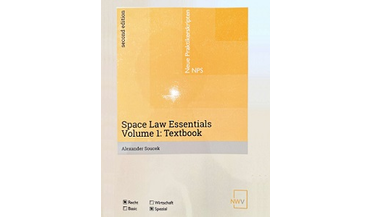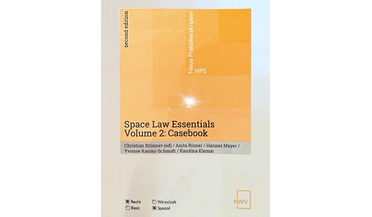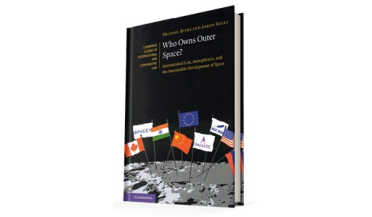 29 March 2018
China's Tiangong-1 space lab is destined for Earth, soon!
29 March 2018
China's Tiangong-1 space lab is destined for Earth, soon!
... spoiling your enjoyment of the find. Secondly, according to the Outer Space Treaty of 1967, which provides the basic framework on international space law, a country’s space object is their legal property. Therefore China still has claims to it, even...
 03 August 2021
Space Law Essentials, Volume 1: Textbook, Second Edition
03 August 2021
Space Law Essentials, Volume 1: Textbook, Second Edition
..., introduces the reader, in a unique and innovative way, not only to the fundamentals of space law (the UN space treaties, the resolutions of the General Assembly or the principles of space law) but also to more specific issues, such as the elements...
 03 August 2021
Space Law Essentials, Volume 2: Casebook, Second Edition
03 August 2021
Space Law Essentials, Volume 2: Casebook, Second Edition
..., introduces the reader, in a unique and innovative way, not only to the fundamentals of space law (the UN space treaties, the resolutions of the General Assembly or the principles of space law) but also to more specific issues, such as the elements...
 01 April 2025
Who Owns Outer Space?
01 April 2025
Who Owns Outer Space?
... ‘non-trivial’. For decades, the answer has been “no-one”, because the 1967 Outer Space Treaty prohibits national appropriation and declares space to be the “province of mankind”. But those words were written more than half a century...
 30 May 2018
China opens up its space station to the world
30 May 2018
China opens up its space station to the world
... to China, but also to the world. Just as the Outer Space Treaty of 1967 proclaimed, the exploration and use of outer space shall be a common province for humankind. Outer space should become a new domain for promoting the common interests...
 20 May 2022
Outer Space - future for humankind issues of law and policy
20 May 2022
Outer Space - future for humankind issues of law and policy
...and development. A key aspect that comes to the fore in any contemporary writing on space law is the fact that existing space law – as enshrined in the 1967 Outer Space Treaty and its offshoots – is not directly applicable to many of today’s promised...